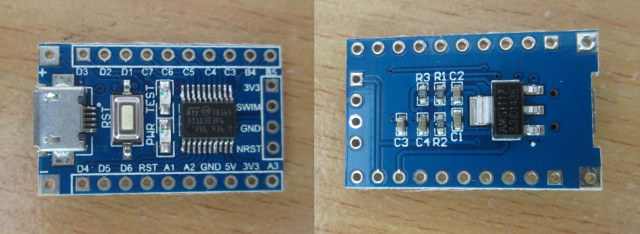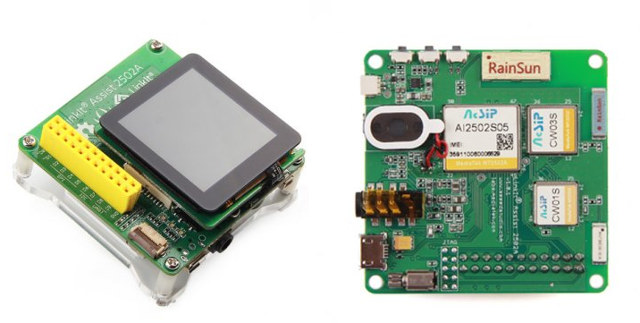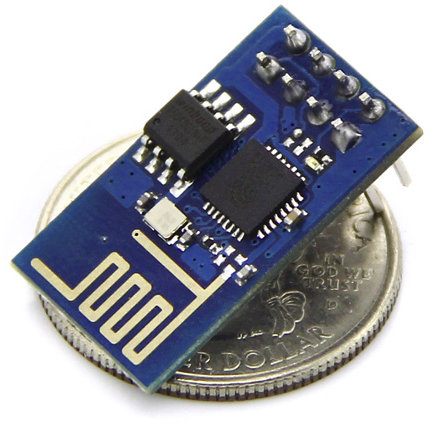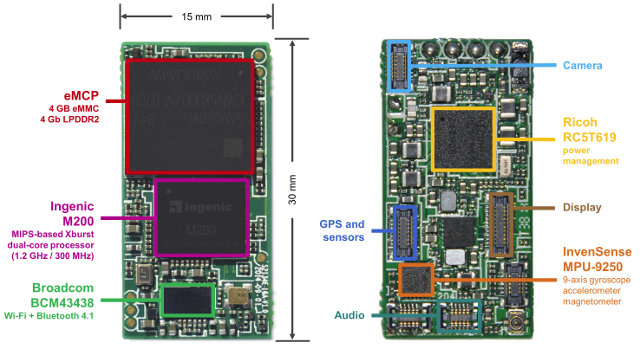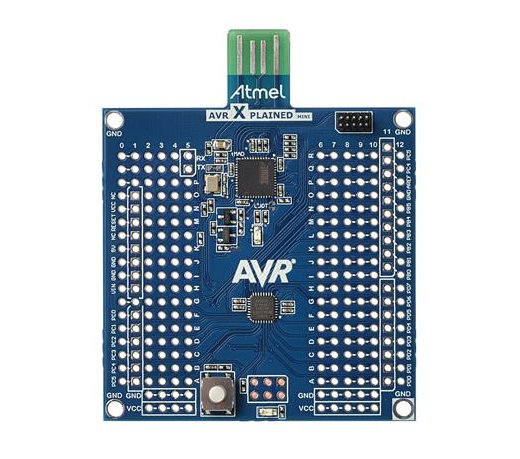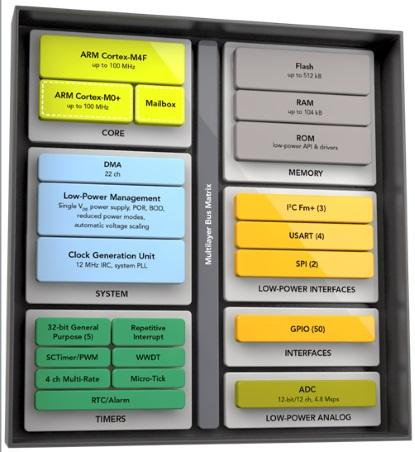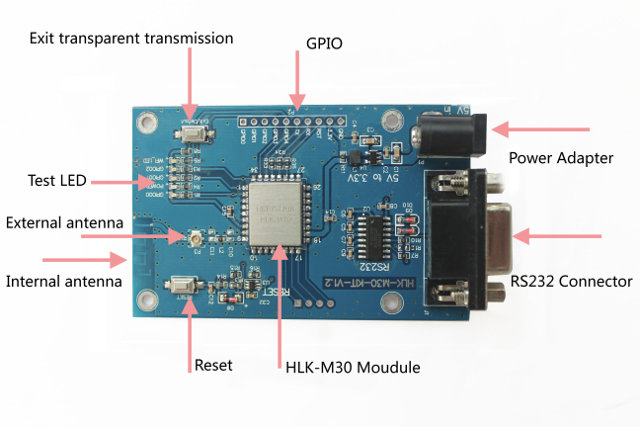In January, I discovered there was such thing as a one dollar development board based on STMicro STM8S103F3P6 8-bit MCU with 1KB SRAM, 8KB flash, and 640 bytes EEPROM, some GPIOs as well as I2C, UART, SPI, ADC, and PWM signals. Links to documentation and source code were provided, but development tools were only Windows based. However, one of my reader informed me SDCC (Small Devices C Compiler) supported STM8, and development in Linux should be feasible. So I decided to buy the board on eBay for $1.62, as well as an ST_link V2 programmer for STM8 / STM32 for $4.52 in order to flash the firmware. The board came pretty quickly, i.e. within 2 to 3 weeks. But due to a lost package, the programmer took nearly 3 months to reach me, as the seller had to re-send after I failed to receive it within 2 months. It comes […]
Mediatek LinkIt Assist 2502 Open Source Hardware Board Targets Wearables and IoT Applications
After LinkIt ONE, Mediatek Labs has introduced a new IoT development kit based on their Aster M2502 ARM7 processor with LinkIt Assist 2502 comprised of AcSiP MT2502A IoT SiP Core module, a 802.11b/g/n module, a GNSS module, and an exchangeable 240×240 16-bit color capacitive touch LCM Board. The AcSiP module can also be purchased separately, so you could use LinkIt Assist 2502 board for early development, because moving to your custom hardware based on AcSiP MT2502A module. LinkIt Assist 2502A specifications: MCU – AcSiP AI2502S05 module with MT2502A (Aster) ARM7 EJ-STM processor @ 260MHz, 4MB RAM, 16MB flash Display – 240×240 LCD module; 16-bit color depth; transflective; based on ST7789S driver IC. Connectivity Wi-Fi 802.11 b/g/n via AcSiP CW01S module based on MT5931 SoC Bluetooth 2.1 SPP and 4.0 GATT dual mode (part of MT2502A) GPS via AcSiP CW03S module based on MT3332 chip supporting GPS, GLONASS, and BeiDou. GSM […]
Crowdfunding Report for 2014 on CNX Software Blog
Following up on my 2013 Crowdfunding Report, I’ve gone through all 55 Kickstarter and Indiegogo crowdunding projects featured on CNX Software between December 2013 and November 2014 (inclusive) to see how well they fared. The table below sort projects chronologically as they were published on this very blog. Date Project Crowdfunding Site Funded? Pledged amount / Goal Expected Delivery Actual Delivery Comments 2. Dec. 2013 Micro Python Kickstarter Yes 97,803 GBP / 15,000 GBP 03/2014 04/2014 Available @ https://micropython.org/store/#/store 5. Dec. 2013 Plugaway Kickstarter Yes $162,835 AUD / $50,000 AUD 04/2014 – People upset because of lack of updates. Project might be dead, and backers lost their money 6. Dec. 2013 AIRTAME Indiegogo Yes $1,268,332 / $160,000 05/2014 12/2014 People have started received the beta versions, after a massive 8-month delay 7. Dec. 2013 Crystal Board Kickstarter No $14,574 / $200,000 04/2014 – The project appears to be dead 10. […]
Add Wi-Fi to Arduino Boards for $3 with ESP8266 Wi-Fi Serial Module
There has been some buzz around ESP8266 Wi-Fi module, mostly because of its low price, and SDK availability, meaning it could become the Wi-Fi equivalent of ENC28J60 Ethernet module, and that for $5 you could potentially add Wi-Fi to your Arduino board for example. Since then, the price has come down even further, and if you are prepared to buy 5 pieces, you can now get the module for less than $3 / piece shipped, alternatively a single module costs $4, and a complete Wi-Fi + Arduino Uno (clone) kit goes for $15. A community has also been built around the chip, and a several project have been made with Arduino boards and ESP8266 module. The best way to find information is to go to ESP8266 community forum, as well as read the Wiki on github. There’s currently a GCC toolchain for Espressif Systems ESP8266, open source tools for working […]
Ingenic Unveils Newton2 Platform for Wearables with M200 Dual Core SoC
Ingenic Newton is a development platform for wearables powered by Ingenic JZ4775, an application processor mostly used in tablets. Many companies are now making SoCs speficially designed for wearables with a powerful application core, and a low power core serving as a sensor hub, an Ingenic M200 SoC found in the new Ingenic Newton2 platform, uses the sample principle by combinging a MIPS XBurst processor @ 1.2GHz with a low power MIPS XBurst core @ 300MHz combined with low power GPU and VPU. Ingenic Newton2 specifications: SoC – Ingenic M200 dual core processor with MIPS XBurst @ 1.2 GHz, MIPS XBurst @ 300 MHz, 2D/3D GPU, and VPU supporting H.264, VP8, MPEG-1/2/4, VC-1, and RV9 up to 720p30 System Memory – 512 MB LPPDR2 (Samsung eMCP) Storage – 4GB eMMC (Samsung eMCP) Connectivity – 802.11 b/g/n Wi-Fi + Bluetooth 4.1 (Broadcom BCM43438) + connector for GPS Sensors – Gyroscope, accelerometer, magnetometer […]
Atmel Introduces ATmega PB MCUs and $8.88 ATmega168PB Xplained Mini Evaluation Kit
Atmel has introduced four new MCU to its megaAVR MCU family with ATmega168PB coming first with 16KB Flash, 512 bytes EEPROM and 1KB RAM, as well as ATmega48PB, ATmega88PB and ATmega328PB to be released in Q1 2015. The new MCUs are pretty similar to the existing mega MCU with an AVR core running at 20MHz, a 10-bit ADC, an Analog Comparator, SPI, I2C, USART, etc…, but they also add a unique serial number readable from application code, the ability to wake-up from power-down mode on receipt of data on the USART interface, and improved accuracy for ADC conversion and UART signals. ATmega328PB also offers a QTouch peripheral touch controller, and on-chip debugging. You can evaluated the new MCU thanks to ATmega168PB Xplained Mini evaluation kit which comes with the following key features: On-board debugger with full source-level debugging support in Atmel Studio Auto-ID for board identification in Atmel Studio 6.2 […]
NXP Introduces LPC54100 Single & Dual Core Cortex M4F/M0+ MCU Family and LPCXpresso54102 Development Kit
NXP has recently introduced LPC54100 Series microcontrollers with a Cortex-M4F core up to 100MHz, and optionally an ARM Cortex M0+ core for always-on sensor processing applications, as well as LPCXpresso 54102 board. Typical applications include mobile, portable health and fitness, home and building automation, fleet management and asset tracking, robotics and gaming. Key features of LPC54100 series MCUs: CPU – 32-bit ARM Cortex-M4F up to 100 MHz, optional 32-bit ARM Cortex-M0+ coprocessor On-chip RAM – 104 KB internal RAM On-chip Storage – Up to 512 KB on-chip Flash Interfaces 3 fast-mode plus I²C, 4 UART, 2 SPI, 39 GPIO ADC with up to 12-channels, 12 bits, and 4.8 Msps sample rate, full-spec (1.62 V to 3.6 V) Clock Sources – IRC, digital clock input, PLL, 32 kHz XTAL, WWDT Timers – 5x 32-bit general-purpose timers/counters, One-state configurable timer/PWM, RTC with alarm, and WWDT 22-channel DMA with 20-programmable triggers Power consumption […]
Hi-Link HLK-M30 StartKit Based on Mediatek MT7681 WiSoC Sells for $10
Here’s yet again another low cost Wi-Fi board for the internet of things with Hi-Link HLK-M30 StartKit featuring an HLK-M30 Wi-Fi module powered by Mediatek MT7681 SoC, exposing 5 GPIOs, and a serial RS-232 DB9 interface. AFAICR, it’s the second MT7681 board featured on CNX Software after xWiFi. Key feature of HLK-M30 Wi-Fi module and Starter Kit: SoC – Mediatek MT7681 WiSoC Wi-Fi Standards – 802.11b/g/n Wi-Fi encryption: WEP/WPA-TKIP/WPA-AES/WPA2-TKIP/WPA2-AES STA/AP mode Protocols supported by MT7681 – TCP Server/Client, UDP Server/Client, DHCP, DNS, HTTP Internal and external antennas Serial – DB9 connector for RS-232 Expansions 2.54mm through holes for 3.3V/GND, Tx/Rx, and GPIO 1 0 to 4. 4-pin SPI interface to flash firmware to IC (not usable by end users) Misc – Test LEDs Power – 5V power barrel Dimensions – 14.1 x 16.5 x 2.25 mm (Module size). PCB size: Unknown. Documentation including User’s manual and AT command sets, windows […]


